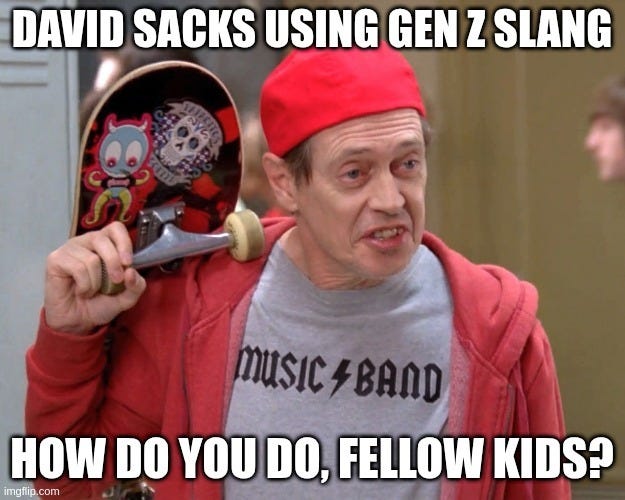Missiles, Quantum, and AI Smugglers: Just Another Weekend
The strange intersection of statecraft, semiconductors, and smuggling.
Good morning,
In case you found yourself spending the weekend in your nuclear-proof bunker, the Middle East erupted in violence as Israel and Iran continue lobbing missiles and drone attacks at one another. The U.S.—which declined to provide support for attacks on Iran—has stepped up to help protect Israel from retaliatory strikes. This increased threat has forced a repositioning of U.S. warships in the region and has even resulted in increased force protection postures in the IndoPacific.
Fortunately—and, at least according to unnamed U.S. officials—President Trump saved Iranian supreme leader Ayatollah Khamanei’s life, by allegedly ‘vetoing’ Israeli plans for a targeted strike against the Ayatollah. We’re uncertain how one state leader can ‘veto’ another, but hey, it briefs well in a two-level game. Anyway, Israel PM Netanyahu’s spokesperson has denied such a plan, although Netanyahu himself pragmatically admits that Israel will do what the country feels it needs to do.
Jensen Huang, Nvidia’s CEO, has flip-flopped from earlier this year. In January the tech visionary stated that he believed useful quantum computing would remain elusive for another generation. This statement caused a sharp sell-off of publicly trade QC companies like D-Wave or IonQ. Now, just over 150 days later, Huang has changed his view and is taking a much more bullish stance on the technology. Huang has said that quantum computing is reaching an ‘inflection point’ and will ‘solve some interesting problems in the coming years.’
Tech does not advance linearly. It advances exponentially, like the example we’ve used of filling Lake Michigan with water.
We might be more bullish than most on quantum, but we’re definitely not betting against it.
On the AI front, Trump’s AI and Crypto ‘czar’ David Sacks has channeled his inner Steve Buscemi as he tries to flex his knowledge of Gen Z and Gen Alpha slang as he argues against AI regulation. Instead, he comes across cringe and sus.
Sacks did stop slinging the slang long enough to put his foot in his mouth about the risk of AI chip smuggling. Speaking at the AWS summit in D.C., Sacks stated, “We talk about these chips like they could be smuggled in the back of a briefcase. That's not what they look like. These are server racks that are eight feet tall and weigh two tons."
You would think that a tech mogul would understand that even if we were talking about server racks, there are components and subcomponents of the end item. But we aren’t talking about full server racks. We’re talking about graphics processing units (GPUs), field programmable gate arrays (FPGAs), and application specific integrated circuits (ASICs). These are all relatively small ‘AI chips’ that easily fit multiples in a suitcase.
And the threat is real. Chinese smugglers are already moving chips in suitcases. And this is enough of a threat that bipartisan members of Congress have introduced legislation to counter it.
Now—let’s dive into today’s news.
News Headlines
Military parade rolls through D.C. as 'No Kings' protestors across U.S. decry Trump (AP)
U.S. helps defend Israel from Iranian missile attacks (MT)
Trump allegedly 'vetoed' Israeli plan to kill Iran's supreme leader (AP)
Suspect apprehended for shooting 2 Minnesota lawmakers (AP)
Tech execs receive direct commissions in Army Reserve's new innovation detachment (DN)
Quantum Tech
Nvidia's Jensen Huang flips saying QC is now approaching 'inflection point' (BBG)
Researchers use trapped-ion QC to tackle tricky protein folding problems (QI)
Researchers use 'enchilada' architecture to advance trapped-ion computing, reducing power dissipation, increasing qubit counts (QI)
Academia Sinica unveiled Taiwan's first dedicated QC fab and testing facilities (QI)
AI / ML
White House AI czar on race with China: 'We've got to let the private sector cook' (FS)
The Navy wants to prototype and deploy GenAI 'at scale' (DS)
Zuckerberg is personally recruiting talent for AI 'superintelligence' team with $100M+ pay packages (RT)
France's Mistral launched Europe's first AI reasoning model (RT)
Google DeepMind unveils AI model for forecasting hurricanes (VB)
Google, Microsoft, and OpenAI will cut Scale AI contracts after Meta deal (RT)
Anthropic unveils AI for top secret defense data (TDP)
OpenAI's ARR doubled to $10B (TC)
NanoTech / Chips
China ramps up photonic chip production with eye on AI and QC (QI)
U.S. says China's Huawei can't make more than 200K AI chips in 2025 (RT)
Huawei's chief admits chips are a generation behind U.S. but claims firm is finding workarounds (RT)
Chinese companies are dodging U.S. chip curbs by flying suitcases of hard drives abroad (WSJ)
AI czar David sacks downplays risk of AI chip exports could be smuggled (RT)
AMD reveals next-gen AI chips with OpenAI (CNBC)
AR / VR / XR
Snap plans to sell lightweight, consumer AR glasses in 2026 to challenge Meta (TC)
Deal Flow
VC
Musk's xAI is in talks to raise ~$20B at a $120B-$200B valuation (CC)
Multiverse Computing, a Spanish a quantum computing technology that shrinks LLMs' size by 95%, raised a $215M Series B led by Bullhound Capital (TC)
Kargo, an inventory management AI startup, raised an $18.4M round led by Matter Venture Partners (BW)
Paris-based Arlequin AI raised a $5.1M seed round led by Vsquared Ventures to build an unsupervised AI solution to combat disinformation (EUS)
PE / M&A / Exits
Meta will acquire a 49% stake in enterprise AI data startup Scale AI for $14.8B and will poach its CEO for its 'superintelligence' AI team (WSJ)
Qualcomm agreed to acquire UK-based semiconductor company Alphawave for $2.4B cash at a 96% premium (TC)
IonQ agreed to acquire UK-based quantum commuting firm Oxford Ionics in a $1.1B cash and stock deal (QI)
Opportunities
The U.S. Navy is seeking white papers and proposals for research related to C4ISR capabilities, enabling techs for information / cyber operations, and IT systems (SAM)
NGA seeks help with software supporting The Globe and GEOINT Search and Retrieval (SAM)
Editor’s Picks
Council on Foreign Relations' emerging tech experts Sebastian Elbaum and Adam Segal suggest that America needs to be prepared to finish second in the AI race.
Quantum expert Jordan Makansi offers a primer on noise-adaptive quantum algorithms.
Lighter Side
Keep Building,
BOF









